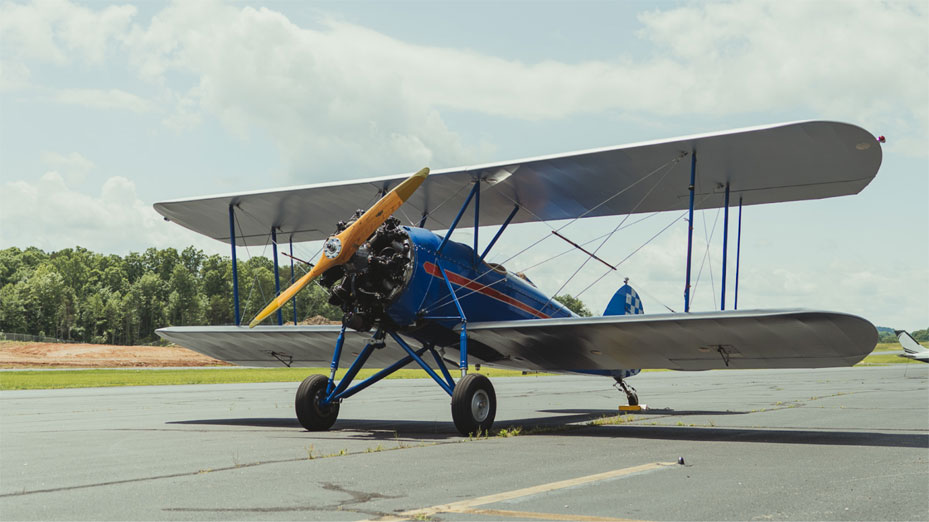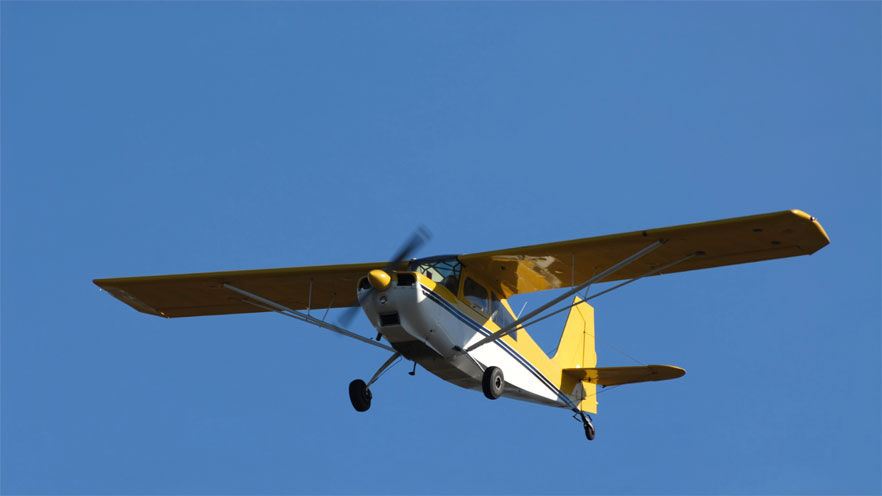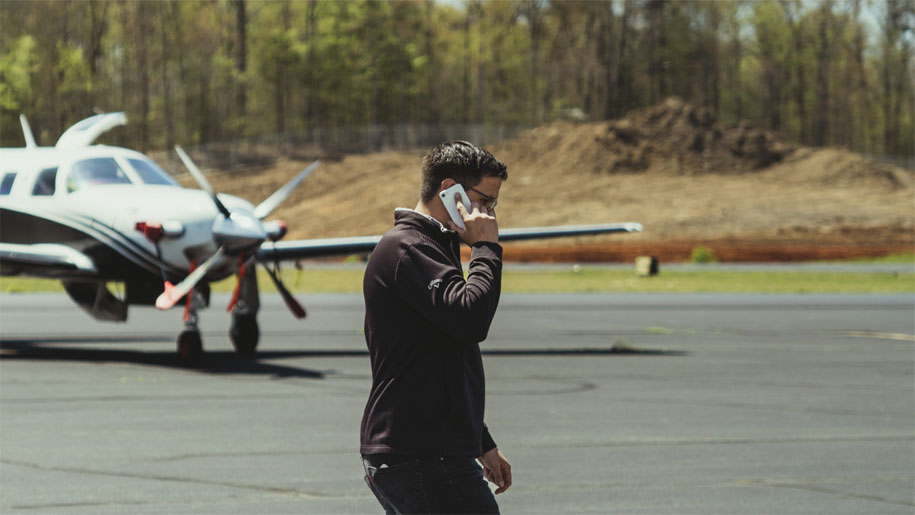Author: Carlos García
Why It’s Never Too Late to Learn to Fly a Plane
If you’ve ever thought about learning to fly, whether for fun, for business, or even for a new career, Shannon Stone’s story will inspire you. He didn’t become a regional airline pilot until his mid-40s. Today, he co-owns a Cirrus and regularly flies King Airs, TBMs, and jets for business and contract work.
In a past episode of The James Spearman Show, Shannon sat down with James to share how his aviation journey unfolded, and why now is a great time for anyone to learn to fly a plane. Here’s what stood out most.
How to Become a Pilot Later in Life
Shannon always loved airplanes. As a kid, he was building model aircraft and hanging out at the local airport. But he didn’t jump into aviation right away. “My parents said I either had to go to college or get a job,” he said. So he went to Eastern Kentucky University, and that’s where flying took hold.
An airport rep offered introductory flight lessons during a campus career fair. Shannon signed up and started training. “It was like a duck taking to water,” he said.
Shannon earned his private pilot license in 1984. That’s decades before he made aviation his full-time career. After working in law enforcement for nearly 30 years and building a successful security business, he decided it was time.
“I was in my 40s, 46 years old, and went to work for the regionals. I wasn’t your typical first officer,” he laughed.
Many people ask, “What age can you learn to fly a plane?” The answer: any age. There’s no hard cutoff for learning. You can begin in your teens or later in life, just like Shannon.
And yes, that includes people looking to change careers. If you’re wondering how to become a pilot, the steps are clear: start with your private license, add an instrument rating, and fly consistently to build proficiency.
It’s Not Just a Hobby, It’s a Smart Business Tool

Shannon’s motivation wasn’t just to check a bucket-list item. Flying became a strategic asset. Whether it's visiting clients, checking in on sites, or traveling with flexibility, having access to an aircraft changed his professional life.
“A lot of my customers don’t start flying until they’re 40 or 50,” James noted. “They’ve built their business and now want to buy back their time.”
If you're a business owner, executive, or entrepreneur, learning to fly a plane for fun can evolve into a practical solution. Shannon co-owns his aircraft with a pharmacy partner, and that connection happened through aviation and his security business.
What Flight Training Actually Costs and Involves
We often get asked, “What’s the cost of learning to fly a plane?” or “What’s the private pilot license cost today?”
The reality is this: the average cost to get your private license ranges from $6,000 to $20,000 or more depending on the aircraft, your schedule, and the school you choose.
That’s why it’s smart to search flight lessons near me and talk to local instructors. Look for those who will work with your timeline and goals. Some people do accelerated courses. Others train at their own pace.
“Find a pro to work with,” James said. “It’s not about getting the cheapest lesson. It’s about building skill and staying alive.”
If you're searching where to learn to fly a plane near me or how to learn to fly a plane, look beyond Google reviews. Ask about safety records, aircraft quality, and experience with adult students.
Is It Safe to Learn to Fly a Plane?

Safety is a common concern, especially for new pilots or their families. “Is learning to fly a plane dangerous?” It can be, without the right mindset.
Shannon and James shared several examples, including a sobering story of a business owner who pushed through a storm and terrified his family. “I allowed it, thinking he’d learn from it,” James said. “And thankfully he did.”
Both stressed the importance of respecting weather, understanding your aircraft, and knowing when to say no. “Most of the rules are written in blood,” James reminded listeners. “And storms are not negotiable.”
Shannon echoed the need for personal minimums and constant learning.
“You’ve got to know the aircraft’s limitations. And you can’t put a price tag on experience.”
So yes, learning to fly a plane is safe, if you approach it with humility and respect.
Why Learning to Fly Pays Off
Learning to fly isn’t just about freedom, it opens new doors. Shannon began flying King Airs, TBMs, and eventually regional jets, all while growing his business and helping other pilots train.
“I love flying. I love networking. And I love helping people get started,” he said.
You don’t need to join the military or learn to fly a plane in the Air Force to gain experience. There are more civilian training options today than ever before, and plenty of pilots like Shannon willing to mentor.
Whether you're in real estate, security, consulting, or healthcare, aviation can become a real advantage. It gives you reach, control over your time, and a new level of confidence.
“Someone coming into the game late in life, especially after growing a business, has a great opportunity to start flying.” - Shannon Stone
Ready to Take the Next Step?
If you’ve been Googling learn how to fly a plane near me or wondering if it’s worth the investment, start with a discovery flight.
Here’s a basic plan:
- Schedule a discovery flight (search: flight lessons near me or contact James)
- Ask about the full cost of getting your license
- Talk to aircraft owners (like Shannon) about ownership pros and cons
- Join AOPA, attend safety seminars, and watch quality YouTube content
And most importantly: don’t rush it. As James said, “This isn’t like owning a boat. You’re flying your family, and your life, around. Take it seriously.”
Final Tip: Don’t Go It Alone
Aviation is a world built on mentorship. Whether you’re just starting lessons or looking to buy your first plane, talk to people who’ve walked the path.
If you’re asking “Where can I learn to fly a plane?”, start by building relationships. The right mechanic, instructor, or co-owner can make all the difference.
Closing Thoughts
You don’t have to start at 18 to become a pilot. Shannon’s story proves that your 40s, 50s, or even later can be the perfect time to get in the air, especially if you have a clear reason and the right support.
At Spearman Aircraft, we don’t just fix planes, we support your whole aviation journey. Whether you're maintaining a Cirrus, upgrading avionics, or getting your first routine inspection, we’re here to help you fly safely and confidently.
Let’s make flying worry-free, no matter when you start.
